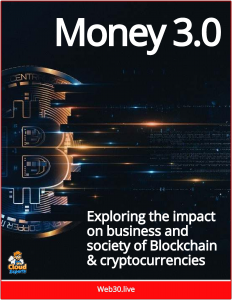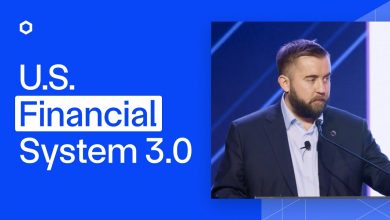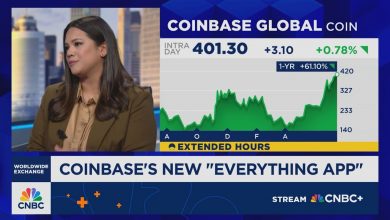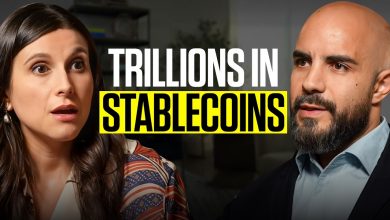Coinbase CEO Brian Armstrong Explains Why Bitcoin Could Become the World’s Reserve Currency
Armstrong argues that Bitcoin could displace the U.S. dollar as the global reserve currency due to escalating national debt and deficit spending in democracies worldwide.
 Coinbase CEO Brian Armstrong has been a vocal advocate for Bitcoin’s potential to become the world’s reserve currency, particularly in light of growing global economic concerns.
Coinbase CEO Brian Armstrong has been a vocal advocate for Bitcoin’s potential to become the world’s reserve currency, particularly in light of growing global economic concerns.
His argument hinges on Bitcoin’s unique properties and the mounting fiscal challenges faced by traditional fiat currencies, especially the U.S. dollar.
Armstrong’s perspective, articulated at events like Coinbase’s State of Crypto Summit in June 2025 and in various public statements, centers on the unsustainable trajectory of government debt and the structural advantages of Bitcoin’s decentralized, fixed-supply design.
The Case for Bitcoin as a Reserve Currency
Armstrong argues that Bitcoin could displace the U.S. dollar as the global reserve currency due to escalating national debt and deficit spending in democracies worldwide. He points to the U.S. national debt, which has surged to $37 trillion, as a critical risk to the dollar’s dominance.
Historically, when currencies are decoupled from hard commodities like gold, governments tend to overprint money, leading to inflation and a loss of trust. Armstrong sees Bitcoin’s fixed supply of 21 million coins as a hedge against this inflationary spiral, offering a “check and balance” on unchecked fiscal policies. He noted at the Coinbase Summit, “Once you decouple currency from hard commodities, the inevitable story is they get overprinted and extended.”
Bitcoin’s decentralized nature and algorithmic scarcity make it an attractive alternative to fiat currencies, which are subject to political manipulation. Unlike the dollar, which relies on the Federal Reserve and government policies, Bitcoin operates on a trustless blockchain, immune to centralized control. Armstrong believes this makes it a compelling store of value, akin to “digital gold,” especially as trust in fiat systems erodes due to rising debt levels. He has emphasized that Bitcoin’s role as a non-sovereign asset could appeal to nations and institutions seeking alternatives to traditional reserves.
The U.S. Debt Crisis and De-Dollarization
Armstrong’s warnings align with broader concerns about the U.S. economy. He highlights that the U.S. debt has grown from $5.7 trillion in 2000 to $36.9 trillion in 2025, a trajectory he views as unsustainable.
This fiscal strain, coupled with policies like the Trump-backed spending bills, could accelerate de-dollarization globally. Armstrong suggests that if Congress fails to address the deficit, “people will flee to [Bitcoin] in times of uncertainty,” potentially positioning it as the new reserve currency. He echoed this sentiment on X, stating, “If the electorate doesn’t hold Congress accountable to reducing the deficit, and start paying down the debt, Bitcoin is going to take over as reserve currency.”
He also contrasts Bitcoin with other potential reserve currencies, like the Chinese RMB, which he dismisses due to China’s own debt issues. Armstrong’s vision is not anti-American—he emphasizes the importance of a strong U.S. economy—but he believes Bitcoin’s rise could be inevitable if fiscal discipline falters.
Bitcoin’s Advantages Over Gold
Armstrong has compared Bitcoin to gold, arguing it is a superior store of value. In a January 2025 post on X, he noted that Bitcoin’s market cap, at $2 trillion, is about 11% of gold’s $18 trillion. He predicts Bitcoin could surpass gold within 5 to 10 years due to its decentralization, scarcity, divisibility, portability, and fungibility.
Unlike gold, Bitcoin is easily transferable across borders and can be divided into smaller units, making it practical for both institutional and retail use. Armstrong urged governments to allocate a portion of their gold reserves to Bitcoin, starting at 1% and potentially growing to match or exceed gold holdings.
Growing Institutional and Sovereign Adoption
Armstrong’s thesis is bolstered by increasing Bitcoin adoption. He points to countries in Latin America, Africa, and Eastern Europe accumulating Bitcoin as sovereign reserves, as well as U.S. states like New Hampshire and Arizona stockpiling it to hedge against dollar devaluation.
Corporations like MicroStrategy and GameStop have also invested billions in Bitcoin, viewing it as a hedge against currency debasement. This trend, combined with legislative clarity in the U.S.—such as Trump’s executive order for a Strategic Bitcoin Reserve—signals a shift toward mainstream acceptance. Armstrong sees this as evidence of Bitcoin moving from a speculative asset to a foundational pillar of the global financial system.
Challenges and Counterarguments
Despite his optimism, Armstrong’s view faces skepticism. Critics like Warren Buffett and Charlie Munger have historically dismissed Bitcoin, arguing it undermines central banks’ ability to manage economies.
Others, like crypto influencer Wendy O, contend that Bitcoin’s volatility makes it unsuitable as a reserve currency, favoring stablecoins instead. South African Reserve Bank Governor Lesetja Kganyago has also questioned Bitcoin’s strategic value compared to gold’s established role. Armstrong acknowledges Bitcoin’s volatility but notes its declining trend, suggesting it could stabilize as adoption grows.
Conclusion
Armstrong advocates for governments to establish Bitcoin reserves, framing it as a matter of national security in a digital economy. He argues, “The next global arms race will be in the digital economy, not space,” and Bitcoin could shift the balance of power among nations. He predicts that if the U.S. leads with a Strategic Bitcoin Reserve, other G20 nations will follow to remain competitive.
Brian Armstrong’s case for Bitcoin as the world’s reserve currency rests on its fixed supply, decentralization, and growing adoption amid a global debt crisis. He sees it as a natural response to fiscal irresponsibility, offering a transparent and inflation-resistant alternative to fiat currencies.
While challenges like volatility and regulatory uncertainty remain, Armstrong’s vision is gaining traction as governments, corporations, and investors increasingly view Bitcoin as a strategic asset. His warnings about U.S. debt and advocacy for Bitcoin reserves reflect a belief that the cryptocurrency could reshape the global financial order, potentially overtaking the dollar if current trends persist.



